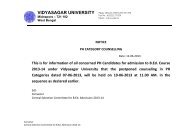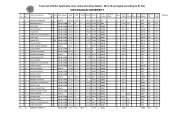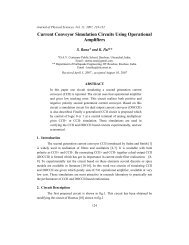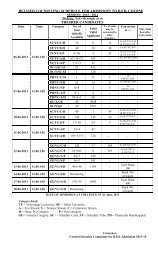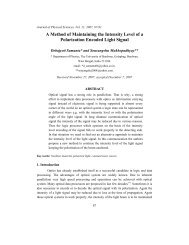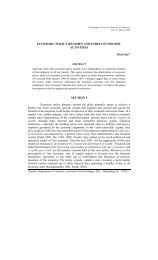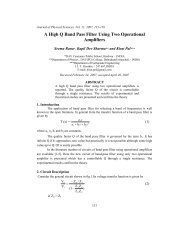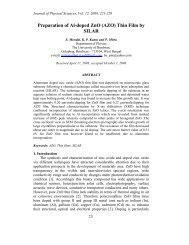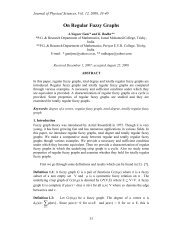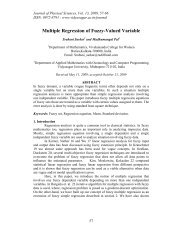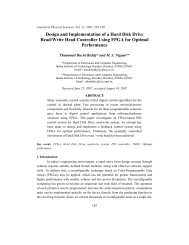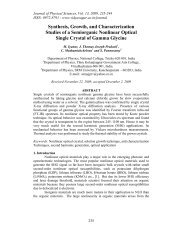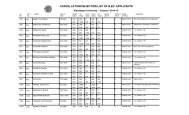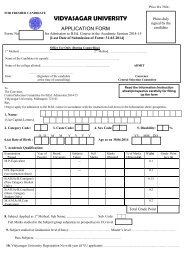VIDYASAGAR UNIVERSITY JOURNAL OF COMMERCE
VIDYASAGAR UNIVERSITY JOURNAL OF COMMERCE
VIDYASAGAR UNIVERSITY JOURNAL OF COMMERCE
You also want an ePaper? Increase the reach of your titles
YUMPU automatically turns print PDFs into web optimized ePapers that Google loves.
CORPORATE RESTRUCTURING THROUGH MERGERS AND ACQUISITIONS: A CASE STUDY<br />
Table-4 :<br />
(Investment figures in different years are in Rs. crores)<br />
04-05 03-04 02-03 01-02 00-01 99-00 98-99 97-98 96-97 95-96<br />
50487 42742 5462.3 35891 8186.7 4416.7 2861.2 1023.4 435.4 262.8<br />
From the above table, it is seen that the average investment of the post-merger period<br />
(Rs.34554 crores) is almost 19 times higher than that of the average investment<br />
corresponding to the pre-merger period (Rs.1799.88 crores). This implies that the company<br />
is increasing its investment and at the same time it is enjoying the benefit of liquidity<br />
through the system of E-BANKING and that is why it has been able to reduce its<br />
unnecessary cash holding with the help of efficient cash management system. In a nutshell, it<br />
is the indication of the efficiency of operational activities of the company under study.<br />
Conclusion<br />
The present study basically aimed at evaluating the effectiveness as well as success of the<br />
strategy of corporate restructuring through merger. From the overall study, it has been found<br />
that the ICICI Bank could not obtain the fruit of such strategy of corporate restructuring<br />
immediately after the merger because, its actual value as indicated by EVA had been<br />
deteriorated (EVAs were negative in the years 2001-02 and 2002-03). This was actually<br />
nothing but the consequence of improper asset management by the company. However, after<br />
these two years, the company has become successful in achieving its objectives of merger<br />
and reported positive values of corporate surplus (EVA). More specifically, from our study it<br />
is evident that, ICICI Bank reported highly negative EVA (Rs. -1645 crore) in the year<br />
immediately after the year of merger, which is nothing but the indication of the deterioration<br />
of corporate surplus. However, in the next year, the company reduced the quantum of<br />
negative EVA (Rs. -141.83 crore) and thereafter the company registered positive value of<br />
EVA (Rs.568.84 crore in 2003-04 and Rs. 532.97 crore in 2004-05). This indicates that the<br />
ICICI Bank has started obtaining the fruits of its strategy of corporate restructuring and at<br />
the same time it may also be expected that the company will be successful in obtaining the<br />
benefits of this strategy and ultimately the company will be able to cerate value in near<br />
future. Moreover, from this study, it would be unwise to draw any generalized inference<br />
regarding the overall success of this strategy of corporate restructuring that demands a broad<br />
based research study.<br />
88 Vidyasagar University Journal of Commerce



